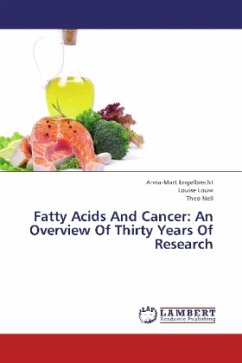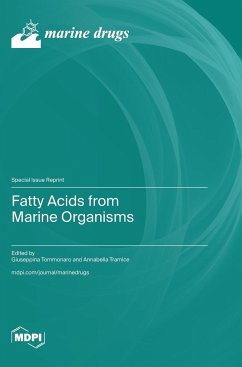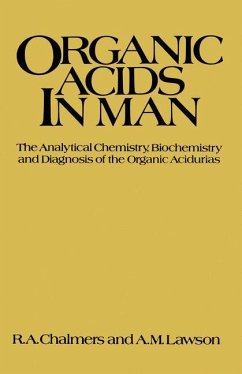
Fatty Acids And Cancer: An Overview Of Thirty Years Of Research
Versandkostenfrei!
Versandfertig in 6-10 Tagen
32,99 €
inkl. MwSt.

PAYBACK Punkte
16 °P sammeln!
The notion that fatty acid intake may influence the incidence of tumorigeneis and cancer has been studied intensively in vivo and in vitro for more than thirty years and seems to be widely accepted. Ranging form epidemiological studies to those conducted using cell cuture models, most studies provide evidence that certain long chain polyunsaturated fatty acids are able to inhibit the development of cancer or slow down tumor growth. However, the cellular and molecular mechanisms responsible for these effects have not yet been clarified, although various hypotheses exist. Therefore the aim of th...
The notion that fatty acid intake may influence the incidence of tumorigeneis and cancer has been studied intensively in vivo and in vitro for more than thirty years and seems to be widely accepted. Ranging form epidemiological studies to those conducted using cell cuture models, most studies provide evidence that certain long chain polyunsaturated fatty acids are able to inhibit the development of cancer or slow down tumor growth. However, the cellular and molecular mechanisms responsible for these effects have not yet been clarified, although various hypotheses exist. Therefore the aim of this chapter is to discuss: PART I: The epidemiological evidence; PART II: The modulation of signaling pathways and the regulation of cell death by fatty acids; and PART III: To give an overview on clinically relevant fatty acids and rationale for adjuvant fatty acid therapy.












